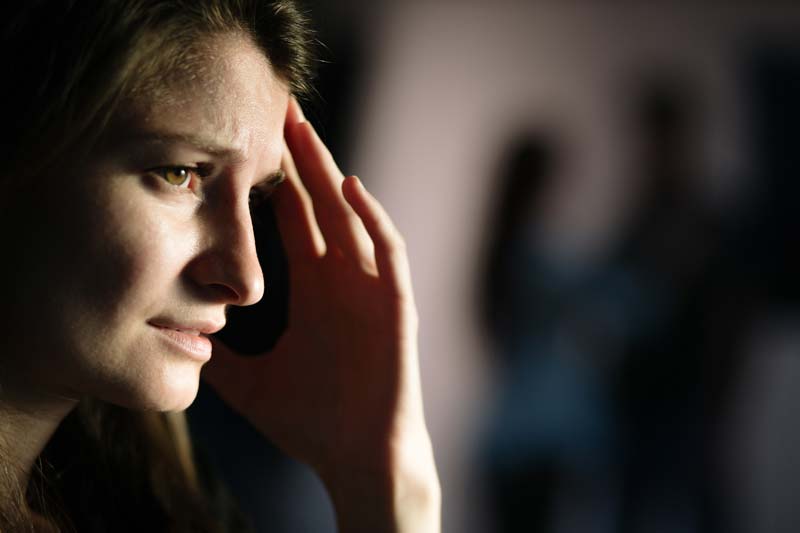
I don't have time to fall apart. There is too much relying on me.
My husband and I are raising two children - including one with a significant disability - and I also work more than a full-time job for which I travel frequently. As I get older, I'm not as energetic as I once was. It's not easy to make time for anything, even my parents. I'm not looking to abdicate the role of caregiver for them, though; I'm looking to manage it, while also trying to prevent my daughter from ending up in the same spot someday.
My parents, stereotypical members of the Silent Generation, are in their late 70s. They've never complained or asked anyone for help. But a lifetime of stoicism has taken its toll, and neglecting their health and other needs for so long is catching up to them. They'd imagined golden years full of Caribbean cruises, afternoons at museums, evenings at the theater and dining at their favorite restaurants. They worked so hard all their lives. But instead of living it up now, they are housebound.
Aging is never pretty, and in my father's case, it has been downright unkind. He is beset with one medical concern after another. He can no longer see well enough to read or go out alone. And because my mother won't go anywhere without him, they stay home unless one of them has a doctor's appointment. The lack of stimulation from sitting at home is making them depressed, confused and disinterested.
It breaks my heart to watch this undignified decline. When my father is in the hospital, I set up camp beside my mother in his room. When he's home, I call every day. I visit when I can, bringing dinner or dessert, photos of my children, their artwork. I talk endlessly about my kids, my job, the books I read, the movies I've seen, the cities I've visited. I offer to buy groceries, make appointments, drive them around, or host them at our house for a change of scenery. Occasionally my mother acquiesces.
But I am always tired. Some nights I try to put myself to bed early, but moments later, I sigh and get back up, haunted by everything I've left undone. When I'm finally back in bed, there's no need to set an alarm; I'll be up long before everyone else to get a head start on the day.
I don't pretend to be Wonder Woman, saving everyone around me. But I need to put on my own oxygen mask before I can do anything for anyone else. There may be nothing I can do to stop what is happening to my parents, but there is a lot I can do to keep my older daughter from being in this position someday. And I have additional motivation: Our older daughter may end up one day caring for her sister, who has a profound neurological disability.
Self-care, my friends remind me. But what is that, anyway? Some days I am so overwhelmed that I want to eat takeout Chinese food while binge-watching Netflix from the couch. Social media posts from my peers are either wine memes or check-ins for spa weekends with massages, personal trainers and mojito-laced brunches. Self-care! the captions exclaim. Mommy needs to unwind! But I don't know how to unwind; when I try, I unravel.
I need to rethink what constitutes self-care, for the sake of my children. What do I have to do now to be able to show up for my parents when they need me, and to minimize what care I will later need?
If anyone deserves to check out, I tell myself, I do. How about a cocktail or a pint of ice cream? Come on, one can't hurt! But I don't know how to have just one, and descent into that level of avoidance and self-pity is decidedly not self-care for me. That is neglect.
So I put our affairs in order. We've done an estate plan, accounting for every possible scenario. We each have a health care proxy and we've assigned durable power of attorney. I increase my retirement account every year. We go to the doctor regularly, including well visits. We take our medicine and our vitamins. We exercise, we discuss, we plan. And then I sleep: I have an array of aids, including an essential oil diffuser and a lavender-scented sleep mask, the Do Not Disturb function on my phone, and more. There is Ativan for when I am desperate. One way or another, I get rest.
When I have time on a weekend and the kids are occupied, I eat my boring salad and go to a yoga class. Or I clean out a drawer. I flop on the couch with a cup of tea and read a novel. When the kids are on the school bus and I have an hour before my first work meeting, my husband and I sometimes take a walk. I meditate on the plane or train when I'm traveling for work. And when I have time off, we travel. Sometimes it's the whole family, other times it's my husband and me, or a special weekend for me and one or both of my girls.
This is how I do self-care.
These things may not be a wild indulgence fit for the social media masses, but they are good for my mind, body and spirit. They engage me physically and cognitively and ground me in the present as I keep an eye toward the future. Because I also want retirement years with cruises, theater and dinners out, and I want my daughter to live a full life with whatever family she chooses, without being sandwiched in by the needs of her aging parents.


 Contact The Editor
Contact The Editor
 Articles By This Author
Articles By This Author